
13 minute read
FEATURES
NICOLE FRISCH
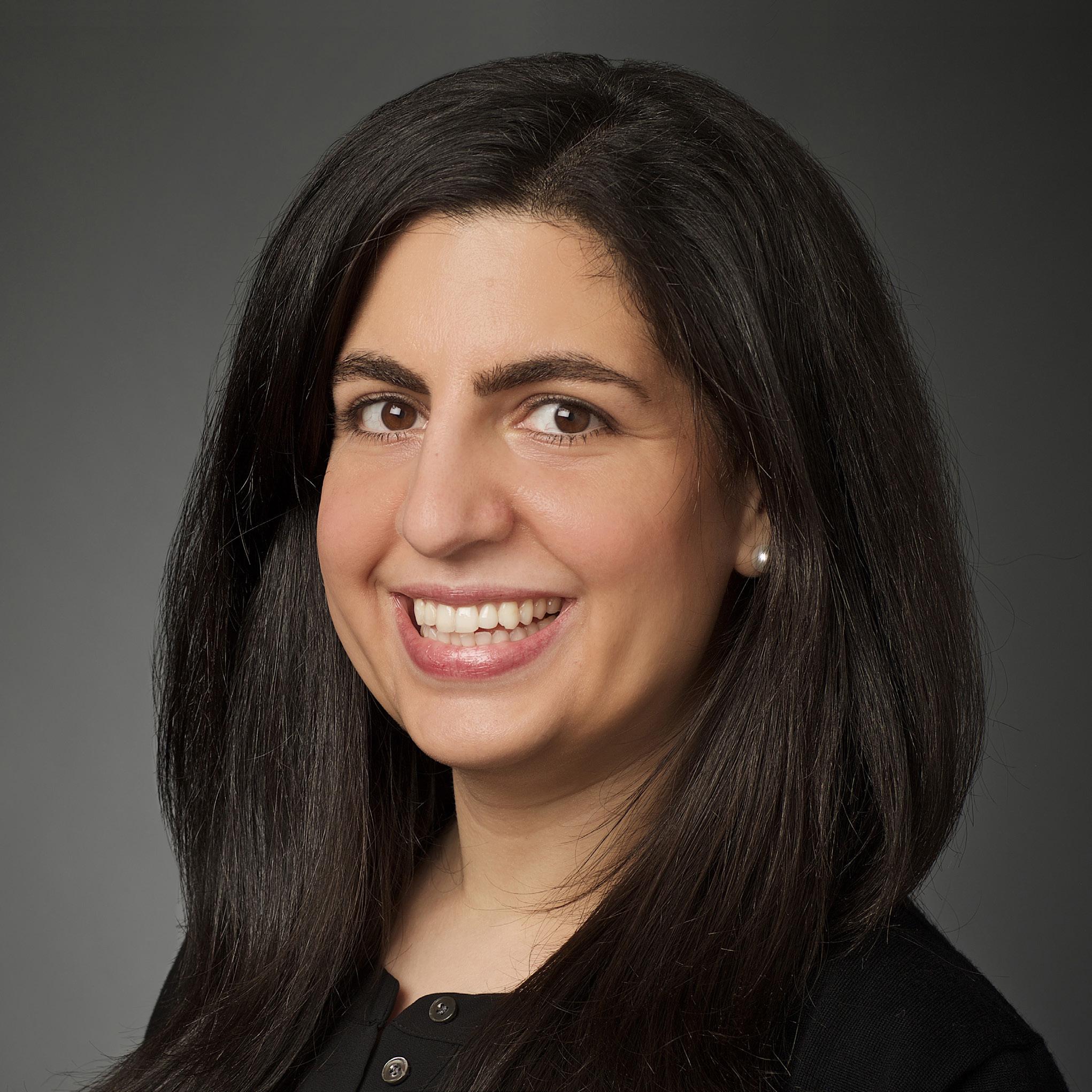
Advertisement
Making the Human Connection

By Mala Blomquist
Nicole Frisch jokes that she “fell into” the work that she has been doing for the past 15 years. She started in fundraising, and then as her yearning to make a more significant impact grew, so did the roles she took on. Wherever she worked, she grew the companies’ relationship with nonprofit partners, employee volunteerism and philanthropy. continued on next page
Nicole has strong ties and deep roots in the Portland community. Born and raised here, she attended the Foundation School at Neveh Shalom, and worked at the Mittleman Jewish Community Center for several summers as a counselor. Nicole graduated from Brandeis University, which further crystallized her focus on social good and justice.
All of this provided Nicole with a strong foundation, a powerful connection to the community and an understanding of how we must invest in, and support, each other.

FROM POLITICS TO NONPROFITS
Nicole came home from her sophomore year at Brandeis and was looking for a summer job that was more edifying than she had had in the past. She ended up landing a spot as an intern with
Ted Kulongoski’s gubernatorial campaign. When the campaign learned that her major was in economics, she was sent to the fundraising department.
She worked for the campaign for two months when a position came open, and they offered it to Nicole – the catch was that she could not return to college and had to stay through the election.
That is what she did. “My ‘semester abroad’ was spending a year living at my parents’ house here in Portland and working on the Kulongoski campaign,” jokes Nicole.
Ted won, and Nicole realized that she really enjoyed the experience. “All the people that I was working with, we believed in something,” she recalls. We weren’t cogs in a wheel, I liked all my jobs before, but there was something about it like we’re making a change. This is something that’s going to have a legacy.”
When she returned to Brandeis, she continued in the realm of politics. She did some consulting and kept doing fundraising. She worked for the Democratic Party of Oregon and went on to work on Nick Fish’s, z”l, city council campaign.
She transitioned into working for nonprofits, working at Reed College and then at Portland Children’s Museum, but she still had the bug from working in politics to work on something more significant to make more of an impact.
“When you work in fundraising for one organization, you have to focus on that organization. It’s hard to serve on committees or boards for other organizations,” says Nicole. “You have to invest where you work. And so I made the switch to corporate social responsibility and, went over to The Regence Group, a Blue Cross Blue Shield affiliate across four states.”
When she started, they were in a transition with their team. They had just launched their foundation and were rebuilding their community investment program. “I got to be part of the redesign of the volunteer program and the redesign and launch of a number of other programs,” says Nicole.
From The Regence Group, she moved to Bank of America. With more than 250,000 employees, she learned to navigate a company the size of a city.
At B of A ,she was involved with corporate social responsibility, philanthropy and volunteering, and she also
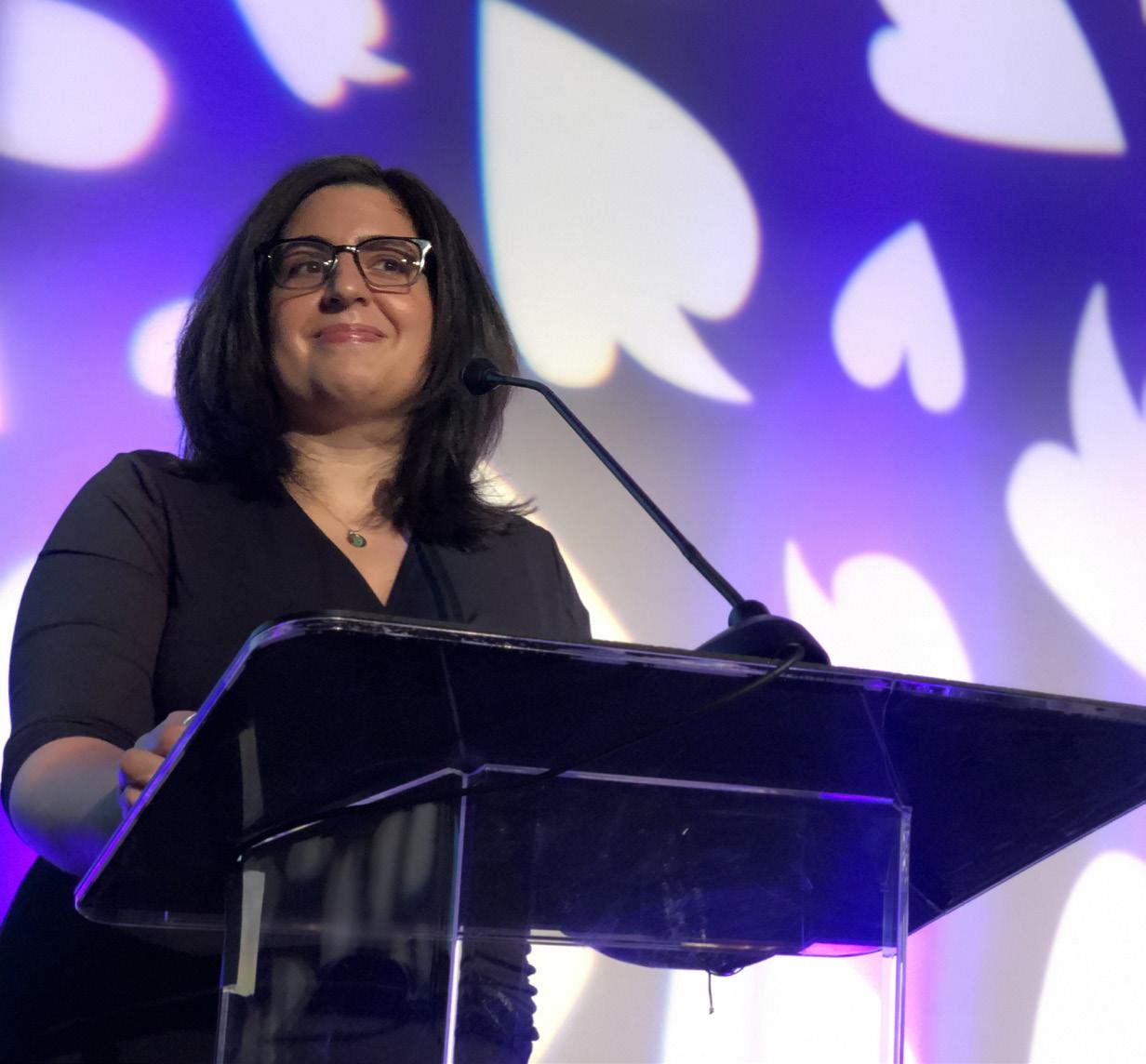
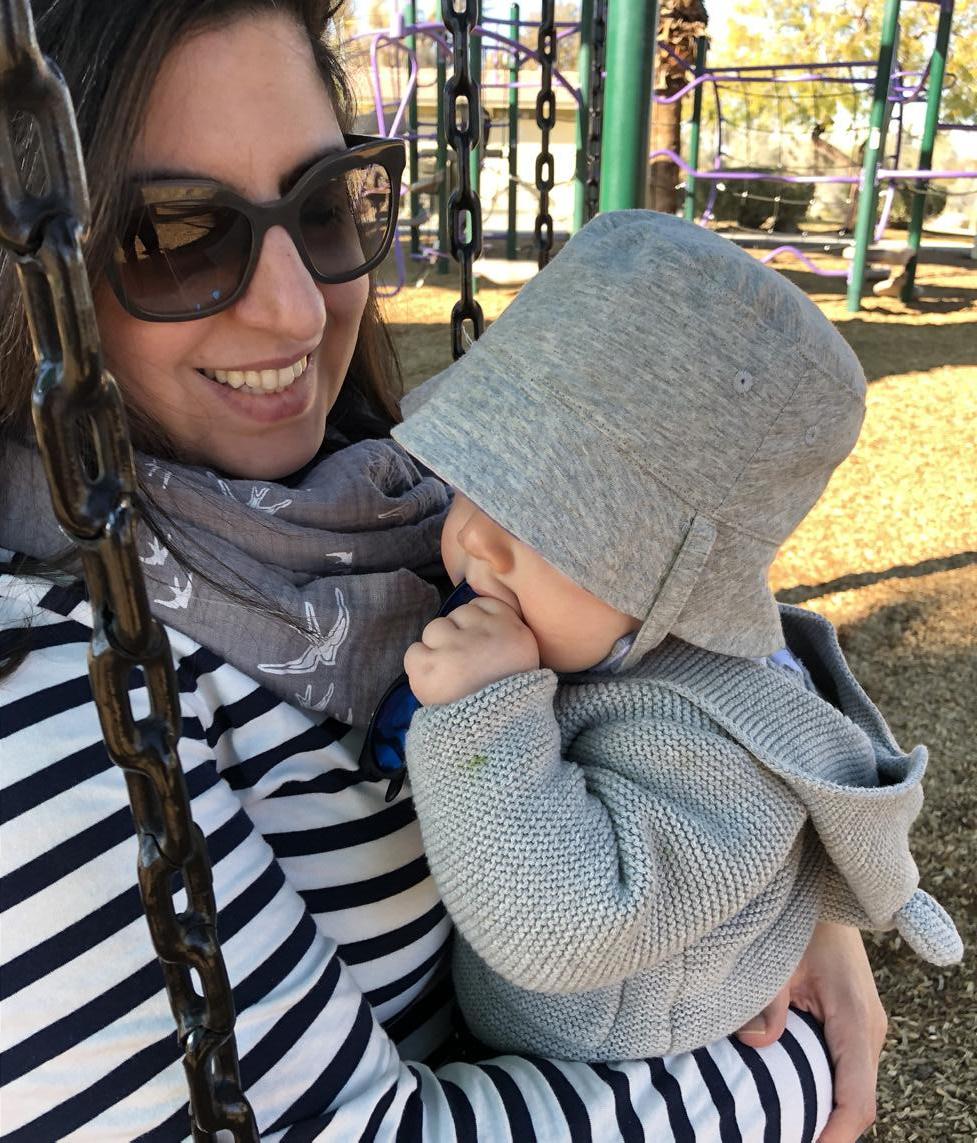
From left: Nicole with husband, Casey Maharg, at the annual Race for the Roses; Speaking at the 2019 Raphael House of Portland gala; With sisters Lisa Frisch (far left) and Jennifer Frisch (center) at Jennifer’s swearing in as a judge. Jennifer lives in the twin cities in Minnesota, and Lisa recently moved to the Bay Area; With baby Jack, pre-COVID.
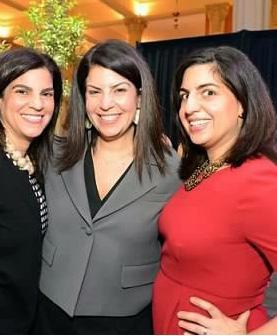
helped manage their diversity and inclusion programs. She engaged with senior leaders and learned the ins and outs of the business.
“I also really learned the power of the story and how storytelling – making that human connection – truly impacts people. Both in terms of where they give but also in how they engage,” says Nicole.
DRIVEN BY PURPOSE
Nicole has noticed over the past 18 years that she’s been involved with philanthropy – people give differently now.
“The way that people give and the why behind their giving is constantly in flux,” says Nicole. “Why people give was something that was part of my work at Brandeis. I was an economics major, and my minor was in cultural anthropology, and a lot of the work that I did was about gifts. What does a gift really mean in your culture? What is the expectation of a gift?”
This year, she noticed a rise in donations to food banks, COVID-19 relief, racial justice organizations and relief funds for wildfires.
“People in Oregon like to give locally, where other communities might be more prone to giving nationally,” says Nicole. “People also want to give as part of a community; it’s almost going back to the older model like mutual aid societies. You’re seeing a lot of giving circles.”
If a group believes in a shared cause or mission, they are pulling their resources together. People don’t necessarily live in the same neighborhood as everyone in their synagogue anymore, so they are looking for other ways to create community.
“Also for millennials and those in Generation Z, the economy that we have been adults in is very different than the economy that boomers were adults in,” says Nicole. “The idea that however much you make in a year; you could buy a house for that same salary. That’s not how it is anymore.”
Another shift for the millennials and Generation Z group is that they are also searching for a sense of community from their employer.
“People want to believe that the work that they’re doing is benefiting the world. They want to know that they’re making an impact,” says Nicole. There’s a lot of interesting data. It used to be the number one reason why employees stayed at a company; the number one indicator of employee engagement was ‘I like my manager.’ Now it’s, ‘I feel like I belong at my company.’”
Nicole advises that the best thing an employer can do for their culture and their company is to find ways to engage their employees. Whether that’s having a robust volunteer program that aligns with corporate values or matching gifts to support employee giving. Making nonprofit contributions as a company is also a great way to demonstrate your values and what you care about to employees.
Volunteering, giving charitably, equity and inclusion, all fall under the umbrella of “purpose.”
“I believe that purpose-driven companies are the future, and they’re especially attractive to both consumers and employees. Who doesn’t want to be part of something
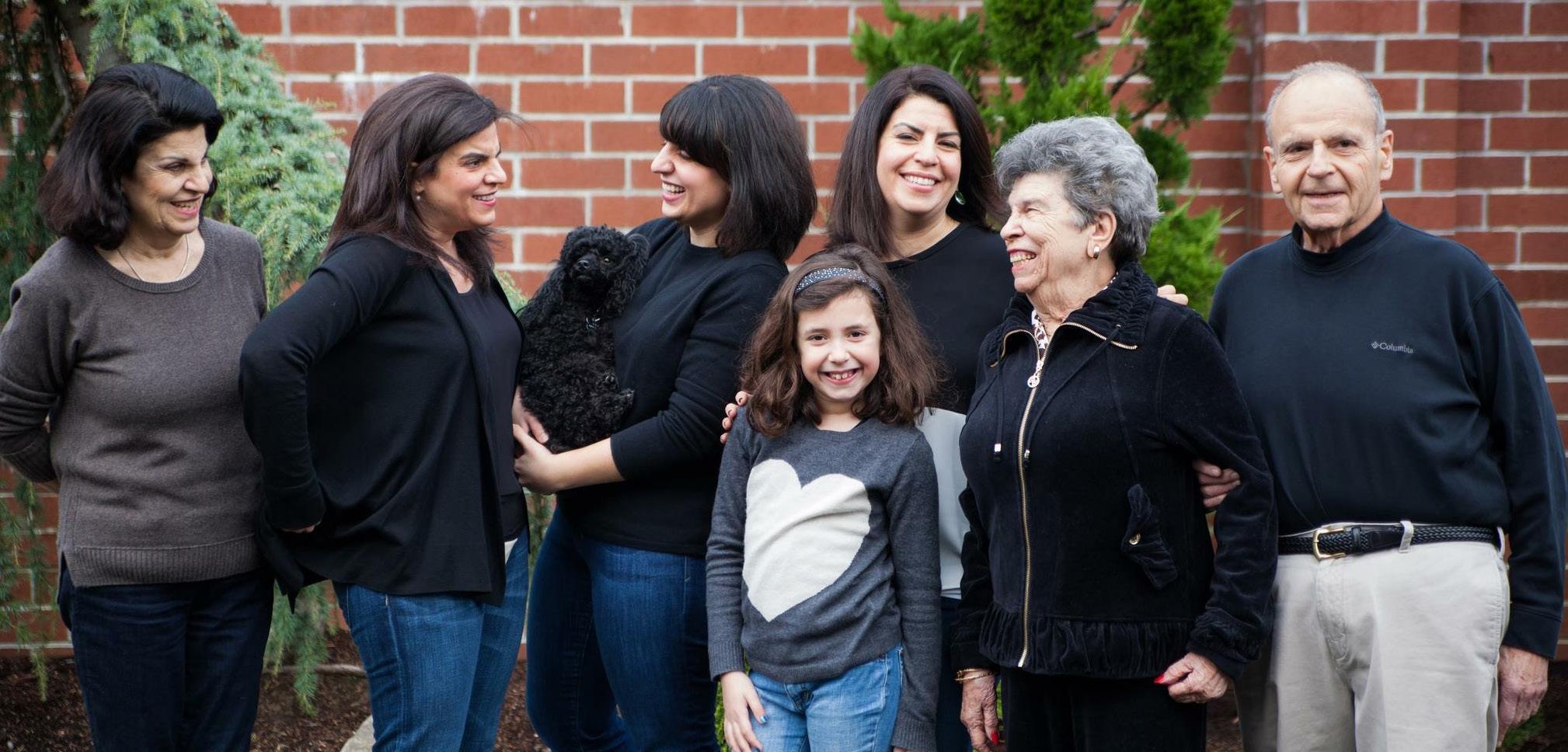
Four generations of family. From left to right: Nicole’s mother, Francine; her sister, Lisa; Nicole (holding her dog); her sister, Jennifer’s daughter Lucy; Jennifer; Nicole’s maternal grandmother Rebecca Israel, z”l, and her father, Arnold z”l.
bigger?’ says Nicole. “You don’t have to be a huge company to be purpose-driven, to engage with your community or to care about equity; you just have to start, and we’re lucky in Portland to have a lot of great resources and leaders who can help you along the way.”
Nicole’s position currently is senior director of community engagement and inclusion for First Tech Federal Credit Union. where she has developed and grown the program over the last few years.
“Today, we work with more than 100 nonprofit partners across our footprint who do amazing, community-centered work, and my team goes above and beyond to continue to evolve our program to best support our employee volunteers and the community,” she says. “I am constantly amazed by the generosity of our employees, and ways our community partners have continued to adapt and innovate to meet the challenges that 2020 presented.”
VOLUNTEERING HER TIME
In addition to her work with nonprofits in her professional life, Nicole is very involved and sits on the board of Raphael House of Portland and Free Geek.
She was introduced to Raphael House seven years ago when she worked for B of A. Besides providing shelter to those impacted by domestic violence, they also have confidential advocates that work in Portland public high schools for students who might be experiencing intimate partner violence or are in an unhealthy relationship. Raphael House also has advocates that work in healthcare clinics to support patients, doctors and nurses. They have programs to help individuals in recovery and support the broader community.
Annually Raphael House serves 130 adults and children in their emergency shelter, assists 1,200 callers on a 24hour access line, supports 480 survivors with ongoing programming, and reaches more than 3,000 youth and adults with prevention education workshops.
“I’ve always been passionate about supporting women,” says Nicole. “There was a study a long time ago that said, ‘One of the best investments that you can make is in a woman,’ because women reinvest in their communities at a very high rate.
“I was ambassador board of the YWCA here in Portland when they had a domestic violence shelter. There was just something about the work at Raphael House that spoke to me. “It’s been such an honor to work with them, and to be the board chair.”
Nicole is wrapping up her sixth year on the board at Raphael House, so this summer she will be off the board but is looking at ways to stay engaged with the organization. Not one to stay still; she is in the process of joining the board of Free Geek.
Free Geek is a digital equity organization that launched on Earth Day 2000 as part of a community-wide public event and opened its doors five months later as a recycling and reuse drop-off facility for electronic waste.
When you donate your old electronic equipment, they restore it and distribute it in the community to folks in need.
“We’re short thousands of laptops for children and families that are all doing distance learning and working
from home. Free Geek is there to both recycle your old technology and as an organization focused on equity,” says Nicole. “How do we ensure that everyone has access to the technology that they need to live in the world that we’re in? The internet and having a computer is not a privilege anymore. It’s like having power and water in your house.”
Nicole shares how amazing the board and leaders are at both organizations, Emmy Ritter, executive director at Raphael House and Hilary Shohoney, executive director at Free Geek.
She talks about balancing your day with things that fuel you and things that take from you.
“There’s always that work where you get out of a meeting, and you’re like, I feel drained. Then you can spend the same amount of time in another meeting, and you come out and feel energized – you’re ready to go,” says Nicole. “That’s what this work is like. It is so fueling to be able to be a part of such amazing organizations.”
FAMILY FIRST
Nicole’s mother is from Portland and has a large extended family in the area. That strong family network is something that strongly influenced her sense of community and Judaism.
She also admits she learned a lot from watching her older sisters – seeing them work hard and become successful.
But when asked who had the most influence on her growing up, Nicole admits it was her father, Arnold Frisch, z”l.
“He really installed a lot of values in me around equity. I think that is what has driven so much of what I have done. I’ve spent a lot of time thinking about this over the last year since my dad passed,” says Nicole.
Arnold was raised in Brooklyn in a family that didn’t have a lot and lost a lot of extended family in World War II. But he excelled in public education.
He graduated high school at 15, he graduated from college at 19, and had a master’s degree in electrical engineering at 21. He was an inventor, a designer and an engineer. But also part of his success was instilling a sense of equity.
“How do you help people who haven’t always been given a chance?” explains Nicole. “Really looking at fairness, and fairness is not that everyone gets the same thing. And equity is not that everyone gets the same thing. Fairness and equity are that everyone gets what they need.”
Nicole jokes that they always like to say that. “My dad had a really big brain.”
As she reflects on all the values that came from her father, she realizes one of her personal favorites – curiosity.
“I feel like if you are not curious in this world, you are losing out. There is so much to know about other people, how things work and how we can do better,” says Nicole. “I think about innovation, growth and learning. I think that is so critical to who I am and how I operate, also how I work with people. Being curious about the people that you work with and being curious about what they care about, that’s something that came from him.”
Curiosity also comes in handy when you are a mother of a not-quite-one-year-old when the pandemic began. Nicole and her husband, Casey Maharg, welcomed their son Jack in April of 2019.
She is grateful to live in Portland and raise Jack in Portland’s Jewish community. Nicole was also recently appointed to the development committee of the Mittleman Jewish Community Center and PJA. “I think that both institutions are just so critical to the fabric of Jewish Portland,” she says. She is excited that Jack gets to grow up at Portland Jewish Academy. “Something about that building just feels like home.”
“We are so lucky that we have this happy, little person in our household. It’s just softened me in a lot of ways in terms of having a deeper understanding of how hard it is for so many people on so many different levels,” says Nicole. “I’ve always been Type A, valedictorian of my high school, straight A’s, color inside the lines – and the combination of becoming a parent and losing my dad and a pandemic in a very short amount of time – well, there are no lines anymore, and coloring in the lines isn’t how I want to be at this point in my life. It’s been an interesting time of transition.”
Casey also helps to keep Nicole balanced. They went to elementary, middle and high school together and grew up in houses less than a mile apart, but didn’t know each other. When they met as adults, they connected the dots!
“He is such a great partner and support, especially around my work. We bounce a lot off of each other and, working from home together the last nine months, have found that we are pretty good “co-workers,” though we work at different companies,” says Nicole. “I’m proud to say that some of my work has rubbed off on him, and he’s one of the leaders of his company’s equity and inclusion work, in addition to his full-time job, and it’s nice that we can support each other in that shared purpose.”
She also hopes that we have a little more grace for one another after the pandemic, a little more understanding.
“I feel like we can be a little bit more transparent about our struggles. Life is hard. There’s the hard stuff that happens. You don’t always have to have it together. And frankly, no one has it all together, all the time, and that’s okay,” says Nicole. “To be able to say, ‘I’m figuring it out,’ and to ask for help. I think that that’s a lesson that a lot of people have learned this past year for sure.” ç









